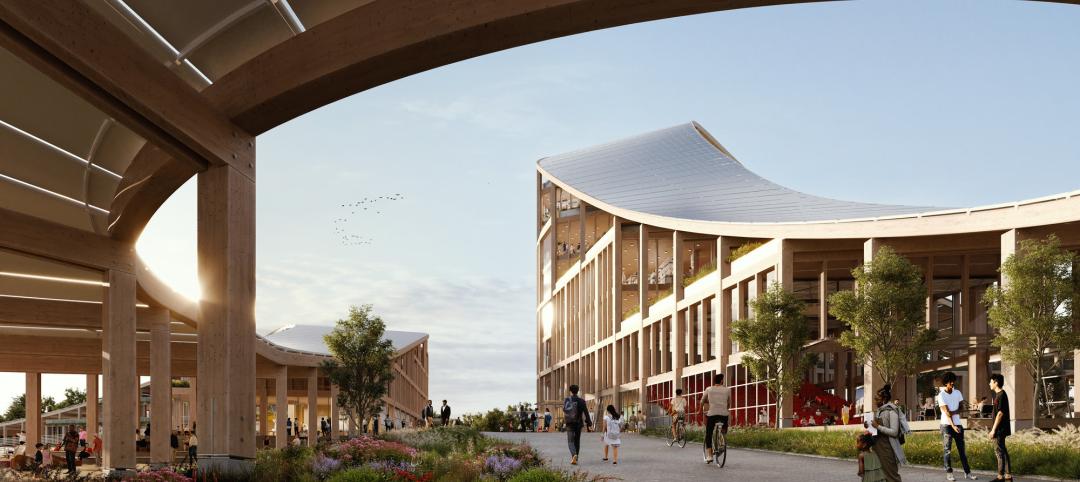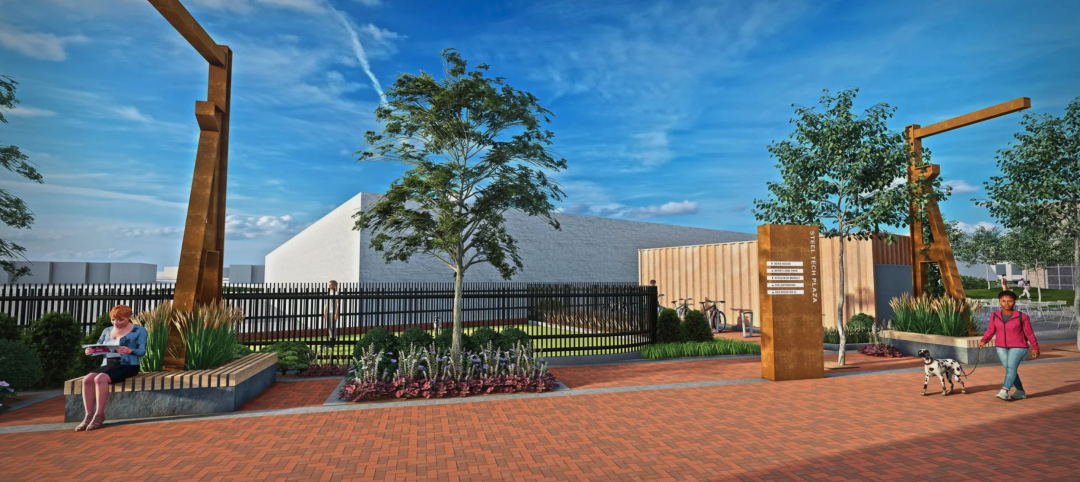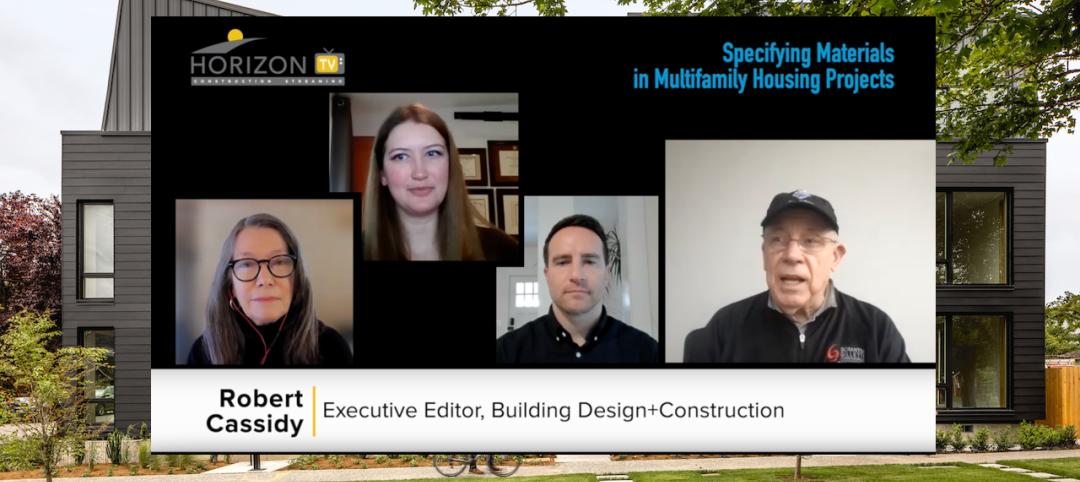My life is rather good, but it’s negligible compared to what that man has done for the art of architecture.” It’s not every day that a Pritzker Laureate heaps praise on a commercial real estate developer. But that’s just want happened during a 1998 lecture by the late postmodern design pioneer Philip Johnson.
Reminiscing about his collaborations with Gerald D. Hines, Johnson gushed over the Houston developer, calling Hines his “mentor and Medici,” adding, “Everything I’ve done, and everything I’ve been, I owe to Gerry Hines.”
Over a span of nearly 30 years, Hines and Johnson teamed to create more than a dozen groundbreaking commercial developments. The unlikely duo—Hines a Gary, Ind.-born math whiz who carried a slide rule in his suit jacket pocket all of his professional life; Johnson, a Harvard-educated, East Coast design elite best known for his Glass House and work with Ludwig Mies van der Rohe—threw the developer-architect rulebook out the window in creating some of Hines’ most daring—and successful—developments.
Most notable is Houston’s Pennzoil Place, with its twin, 36-story trapezoidal towers. Some credit the acclaimed project, completed in 1975, with sparking a reconnection between architecture and commercial real estate development in the U.S. “After Pennzoil, everyone wanted something other than a box, it seemed,” wrote architecture critic Paul Goldberger in 2012.
The Hines-Johnson alliance is one of countless stories chronicled by author Mark Seal in a new 464-page book about the developer’s career and life, “Raising the Bar: The Life and Work of Gerald D. Hines.”
The book offers a glimpse into the man who, fresh out of Purdue University in 1948 with a degree in mechanical engineering, road tripped to Houston with little money and no place to live. In less than a decade, Hines was developing warehouses and small office buildings throughout the city. By the late 1960s, he was working on what would become some of the city’s most iconic buildings: One Shell Plaza, The Galleria, and later Pennzoil Place and Williams Tower.
Through his stories and projects, Hines, who turns 91 this year, offers a wealth of lessons in real estate development. A few that stuck out:
Know how to spot an opportunity. Hines was one of the first developers to gamble on the idea of high-rise living in Houston when he planned the 16-story Willowick apartment complex in 1963. While others questioned his move, Hines had a trick up his sleeve. He spotted a niche market that wasn’t being served: housing for widows, who preferred the security and efficiency of high-rise living over single-family homes.
Take pride in ownership. While other developers profit from flipping their properties, Hines favors the build-and-hold strategy. “I didn’t think anybody built them better than I did,” he said. “I believed they’d be worth more in the future.”
Harness the power of great architecture. From Bruce Graham to Gyo Obata to Johnson, Hines invested in quality design because he realized the market was willing to pay for something that is truly unique. Great architecture makes good business sense.
For anyone who is fascinated by the world of commercial real estate development, “Raising the Bar” is a must-read. Let’s just hope that Hines’ lifelong passion for creating great buildings inspires a new breed of holistic, design-minded developers.
Related Stories
Multifamily Housing | May 1, 2023
A prefab multifamily housing project will deliver 200 new apartments near downtown Denver
In Denver, Mortenson, a Colorado-based builder, developer, and engineering services provider, along with joint venture partner Pinnacle Partners, has broken ground on Revival on Platte, a multifamily housing project. The 234,156-sf development will feature 200 studio, one-bedroom, and two-bedroom apartments on eight floors, with two levels of parking.
Mass Timber | May 1, 2023
SOM designs mass timber climate solutions center on Governors Island, anchored by Stony Brook University
Governors Island in New York Harbor will be home to a new climate-solutions center called The New York Climate Exchange. Designed by Skidmore, Owings & Merrill (SOM), The Exchange will develop and deploy solutions to the global climate crisis while also acting as a regional hub for the green economy. New York’s Stony Brook University will serve as the center’s anchor institution.
Sustainability | May 1, 2023
Increased focus on sustainability is good for business and attracting employees
A recent study, 2023 State of Design & Make by software developer Autodesk, contains some interesting takeaways for the design and construction industry. Respondents to a survey of industry leaders from the architecture, engineering, construction, product design, manufacturing, and entertainment spheres strongly support the idea that improving their organization’s sustainability practices is good for business.
Office Buildings | May 1, 2023
Office building owners face potential legal liabilities when adding new workplace amenities
Many landlords in the war for tenants have turned to offering new amenities such as conference room services, fitness centers with nutritionists, and high-end food and beverage offerings. To provide new services, landlords often engage with third-party vendors, which can present thorny legal liability.
Codes and Standards | May 1, 2023
Hurricane Ian aftermath expected to prompt building code reform in Florida
Hurricane Ian struck the Southwest Florida coastline last fall with winds exceeding 150 mph, flooding cities, and devastating structures across the state. A construction risk management expert believes the projected economic damage, as high as $75 billion, will prompt the state to beef up building codes and reform land use rules.
| Apr 28, 2023
$1 billion mixed-use multifamily development will add 1,200 units to South Florida market
A giant $1 billion residential project, The District in Davie, will bring 1.6 million sf of new Class A residential apartments to the hot South Florida market. Located near Ft. Lauderdale and greater Miami, the development will include 36,000 sf of restaurants and retail space. The development will also provide 1.1 million sf of access controlled onsite parking with 2,650 parking spaces.
Design Innovation Report | Apr 27, 2023
BD+C's 2023 Design Innovation Report
Building Design+Construction’s Design Innovation Report presents projects, spaces, and initiatives—and the AEC professionals behind them—that push the boundaries of building design. This year, we feature four novel projects and one building science innovation.
Mixed-Use | Apr 27, 2023
New Jersey turns a brownfield site into Steel Tech, a 3.3-acre mixed-use development
In Jersey City, N.J., a 3.3-acre redevelopment project called Steel Tech will turn a brownfield site into a mixed-use residential high-rise building, a community center, two public plazas, and a business incubator facility. Steel Tech received site plan approval in recent weeks.
Multifamily Housing | Apr 27, 2023
Watch: Specifying materials in multifamily housing projects
A trio of multifamily housing experts discusses trends in materials in their latest developments. Topics include the need to balance aesthetics and durability, the advantages of textured materials, and the benefits of biophilia.
AEC Tech Innovation | Apr 27, 2023
Does your firm use ChatGPT?
Is your firm having success utilizing ChatGPT (or other AI chat tools) on your building projects or as part of your business operations? If so, we want to hear from you.

















